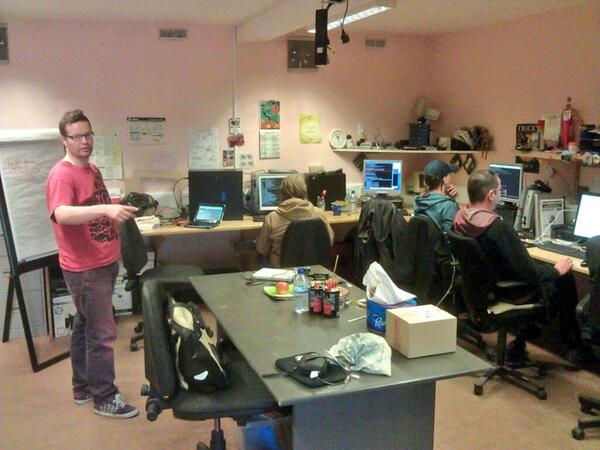Increasing numbers of recent security incidents against industrial control systems raise questions about the ability of many organisations to respond to cyber-security attacks. Researchers from Bristol University’s Cryptography Group and the Safety Systems Research Centre have contributed to an EU paper on the resilience of critical information infrastructures.
The white paper, entitled “Can we learn from SCADA (supervisory control and data acquisition) security incidents?” was issued by ENISA, the EU’s cyber-security agency, on 9th October. The paper’s authors are: Adrian Pauna, ENISA; Konstantinos Moulinos, ENISA; Matina Lakka, ENISA; Dr John May, Faculty of Engineering, University of Bristol; and Dr Theo Tryfonas, Faculty of Engineering, University of Bristol.
Industrial Control Systems (ICS) look more and more like consumer PCs, are used everywhere and involve a considerable amount of software, which is often outdated and unpatched. Recent security incidents in the context of SCADA and ICS emphasise the importance of good governance and control of SCADA infrastructures, particularly the ability to respond to critical incidents and be able to analyse and learn from what happened is crucial.
The aim of the white paper is to raise awareness of how organisations could respond to the increasing numbers of recent security incidents against ICS and SCADA, as well as providing recommendations regarding prevention and readiness for a swift and integrated response to cyber-security attacks against ICS and SCADA.
Dr. Theo Tryfonas, a member of the Cryptography Group who contributed to the paper, said: “This white paper marks a first European step towards developing a common approach for the integrated response to cyber-attacks against critical information infrastructures across the Union.
“Organisations at the heart of the critical functions of our nations need to maintain incident monitoring capabilities, as well as the ability to secure and collect related evidence in order to learn from what happened.
“This is even more important, as the proliferation of emerging information and communication technologies transform the traditionally isolated and proprietary industrial systems in transport, utilities and many other critical sectors.”
Dr John May, Director of the Safety Systems Research Centre, added: “In a highly interconnected world, these control systems have a special role. We depend on them in areas crucial to everyday life, such as transport and energy, and our safety is often in their hands. Because of this and as we develop these systems to do more for us, it is vital to gain a fundamental understanding of the complex new ways in which they can go wrong or be manipulated maliciously to do harm.”
The aim of the white paper is to raise awareness about how organisations could respond to the increasing numbers of recent security incidents against ICS and SCADA and provides recommendations regarding prevention and readiness for a swift and integrated response to cyber security attacks against ICS and SCADA.
Dr Theo Tryfonas, a member of the Cryptography Group who contributed to the paper, said: “This white paper marks a first European step towards developing a common approach for the integrated response to cyber attacks against critical information infrastructures across the Union.
“Organisations at the heart of the critical functions of our nations’ need to maintain incident monitoring capabilities, as well as the ability to secure and collect related evidence in order to learn from what happened.
“This is even more important, as the proliferation of emerging information and communication technologies transform the traditionally isolated and proprietary industrial systems in transport, utilities and many other critical sectors.”
Dr John May, Director of the Safety Systems Research Centre, added: “In a highly inter-connected world, these control systems have a special role. We depend on them in areas crucial to everyday life, such as transport and energy, and our safety is often in their hands. Because of this, and as we develop these systems to do more for us, it is vital to gain a fundamental understanding of the complex new ways in which they can go wrong or be manipulated maliciously to do harm.”
 Microsoft has announced that it will be ending support for Windows XP, now 12 years old, on 8th April 2014.
Microsoft has announced that it will be ending support for Windows XP, now 12 years old, on 8th April 2014.


 There’s an open data meet-up taking place in Bristol next month.
There’s an open data meet-up taking place in Bristol next month.

 Last week Joinup, the EU’s public sector open source news site,
Last week Joinup, the EU’s public sector open source news site, 

 In the week a
In the week a 
 We’ve had an email from Sean Kenny of
We’ve had an email from Sean Kenny of 
